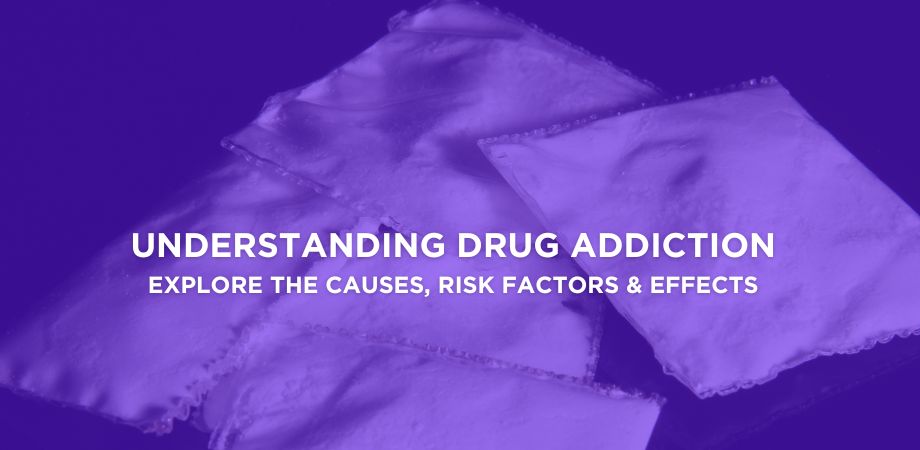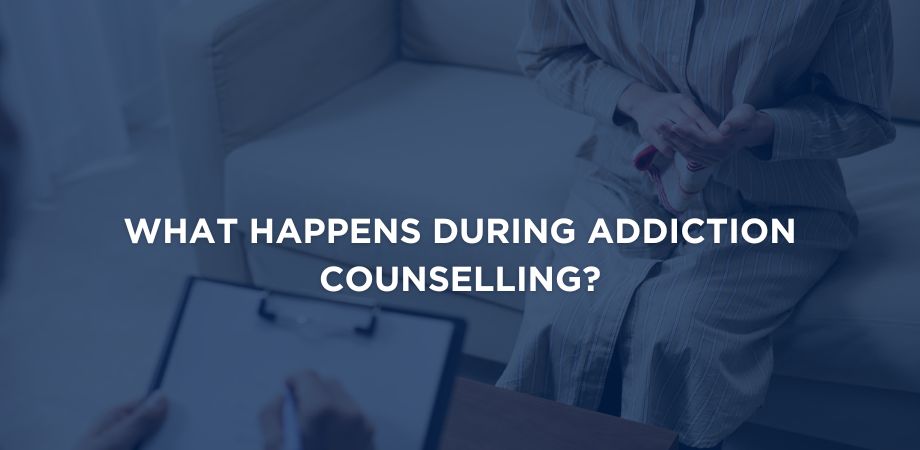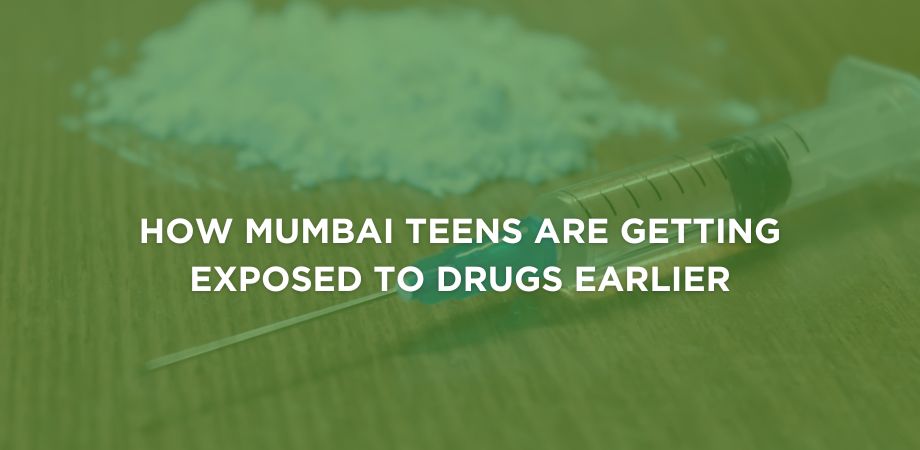Drug addiction or substance abuse disorder is a chronic, relapsing brain disease, which is characterised by compulsive drug seeking despite its negative consequences. The physiological activity of addicts is altered to such levels that it makes them physically and psychologically dependent on drugs. Today, drug addiction has become a major concern around the world and has affected millions of people.
Drug addiction involves the use of a range of substances, which include, but are not limited to, depressants (like alcohol and benzodiazepines), opioids (like heroin and prescription painkillers), stimulants (like cocaine and methamphetamine), and cannabis. The risk of addiction and how fast a person becomes addicted varies by the drug. Some drugs, like opioids, have a higher risk of addiction than others.
The common signs and symptoms of drug addiction include developing tolerance to the substance, withdrawal symptoms upon cessation, and neglecting responsibilities. Fortunately, there are numerous treatment options that can help you or your loved one get away from the ailments.
The treatments involve a mix of evidence-based behavioral therapies and medications, helping manage cravings and withdrawal. It is advisable to visit a reliable drug addiction rehabilitation center to treat your addiction and be on a path to recovery. Alpha Healing Center is a premier rehabilitation center where we provide a comprehensive treatment plan as per the patient’s diagnosis. We follow a holistic treatment approach, where we not only heal the addiction but also the mind, body, and soul. Get in touch with our team and learn what we have to offer.
What Is Drug Addiction?
Drug addiction is a complex neurobiological disorder that affects a person’s brain, which influences their dependence on substances. The Diagnostic and Statistical Manual of Mental Disorders, 5th edition (DSM-5) describes it as a substance use disorder (SUD). As per the manual, individuals continue to use substances despite knowing their harmful effects on their personal lives and professional careers.
Addiction can affect the physical and psychological health of individuals. Physically, individuals may develop higher tolerance and dependence alongside damage to internal organs or infections. Psychologically, the disorder may result in the loss of control and increased cravings.
How Common Is Drug Addiction?
Drug addiction is a prevalent global health condition that has affected millions of people around the world. According to the United Nations Office on Drugs and Crime (UNODC) World Drug Report 2024, over 64 million people are suffering from drug use disorders. This number represents a significant portion of the world’s population, underscoring the magnitude of the problem. It is impacting millions of lives and has become a major burden on society and public health systems.
How is drug abuse different from drug addiction?
The major difference between drug abuse and drug addiction is the need to compulsorily take the drug and loss of control. In drug abuse, an individual uses a harmful substance, despite knowing its risks and legal consequences. However, the person can stop using the substance without having any withdrawal symptoms. In contrast, drug addiction is a chronic disease that requires compulsive drug-seeking and use. After constantly using drugs, the brain reward system is altered, compromising the individual’s self-control and requiring the compulsive use of drugs.
Drug abuse can eventually lead to drug addiction if not stopped at the right time. However, not everyone who abuses drugs will end up developing a chronic, compulsive disease of addiction.
Despite the high rates of drug use disorders, the treatment gap remains significant, with UNODC reporting that only 1% receive treatment. Alpha Healing Center has been serving the community for over nine years and has been successful in helping individuals lead more fulfilling lives.
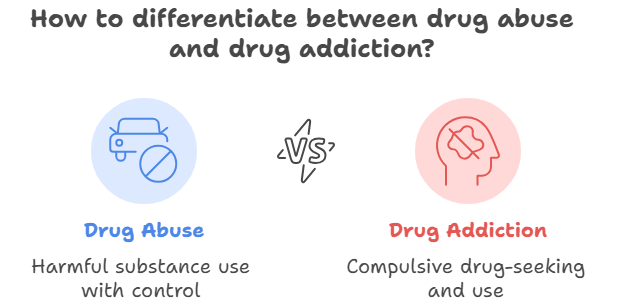
What are the common types of drug addiction?
The common types of drug addictions are alcohol, cocaine, prescription drugs, heroin, marijuana, meth, MDMA, sleeping pills, and Benzodiazepine addiction. These substances have an adverse effect on the nervous system and alter brain reward chemistry. Let’s understand more about them below.
Alcohol Addiction
Alcohol is a depressant that slows down the neurological function of the brain. Alcohol addiction or Alcohol Use Disorder is a chronic condition that progresses slowly, which can later develop into severe health consequences. Some common signs of alcohol addiction include loss of control, strong cravings for alcohol, and mood swings. Alcohol distribution and consumption are legal as per the Seventh Schedule of the Constitution. However, different states have varying laws that prohibit the sale and consumption. Furthermore, the drinking age also varies from 18 to 25 years in different states.
Cocaine Addiction
Cocaine is a powerful stimulant that impacts the brain’s reward system, affecting its dopamine levels. Cocaine addiction can cause severe neurological and cardiovascular complications. The common signs include extreme paranoia, hyperactivity, dilated pupils, and dramatic mood swings. Consumption and possession of cocaine are illegal as per the Narcotic Drugs and Psychotropic Substances (NDPS) Act, 1985.
Prescription Drug Addiction
Prescription drugs can be opioids(for pain), stimulants (for ADHD), or depressants (for anxiety/sleep). Prescription drug addiction usually begins when a doctor prescribes medication; however, it leads to misuse. Common signs include taking higher doses and mood changes. The misuse of prescription drugs has led to numerous deaths and increased drug crises around the world.
Heroin Addiction
Heroin is a highly addictive opioid drug that is produced by processing morphine. Heroin addiction has an adverse effect on the brain that usually results in overdose, dependence, and the spread of infectious diseases. The common signs include slurred speech, drowsiness, needle marks, or financial woes. The drug is illegal to consume and possess in India.
Marijuana Addiction
Marijuana contains tetrahydrocannabinol (THC) to give a high, and it can be classified as a mild hallucinogen or depressant. Marijuana addiction or cannabis use disorder can lead to impairment in memory or loss of attention, especially in adolescents. It is illegal to cultivate, own, or consume marijuana in India.
Meth Addiction
Methamphetamine (Meth) is a potent stimulant that releases high levels of dopamine to the brain. Meth addiction causes severe deterioration of a person’s physical and mental condition, including weight loss or dental decay. Some other symptoms include twitching, paranoia, hallucinations, or erratic behavior. Meth is illegal and classified as a Psychotropic Substance under the NDPS Act.
MDMA Addiction
MDMA (3,4-methylenedioxymethamphetamine), commonly called ecstasy or molly, is both a stimulant and a hallucinogen. MDMA addiction can cause severe hyperthermia, dehydration, and long-term memory impairment due to the release of serotonin, causing elevated mood swings. Common signs of addiction include euphoria, increased energy, and excessive emotional warmth. Similar to most other drugs, it is illegal to possess or consume MDMA.
Sleeping Pill Addiction
Sleeping pills are depressants like Ambien or benzodiazepines. The sleeping pill addiction involves dependence on prescription pills. It is characterized by withdrawal symptoms upon cessation, tolerance, and muscle weakness. Acquiring sleeping pills requires a doctor’s prescription in India.
Benzodiazepine Addiction
Benzodiazepine is a powerful depressant that is utilised to treat anxiety, seizures, or insomnia. Benzodiazepine addiction is a serious condition that results in dangerous withdrawal symptoms. Common signs include sedation, memory loss, and a persistent need for medication. Benzodiazepines are classified as scheduled drugs, which means it is illegal to buy them without a doctor’s prescription.
What Are Signs and Symptoms of Drug Addiction?
The symptoms of drug addiction are complex, as they encompass physical, behavioral, and psychological changes impacting an individual’s life. These symptoms are caused by their compulsive use of substances.
Common signs and symptoms of drug addiction are given below:
Physical Symptoms
- Sudden weight loss or gain
- Bloodshot eyes or pupils
- Neglecting personal grooming and hygiene
- Insomnia or excessive sleeping.
Behavioral Symptoms
- Change in friend circle or hobbies
- Unexpected financial troubles
- Legal troubles
- Failure to meet family and work obligations
Psychological Symptoms
- Development of anxiety and depression
- Paranoia or hallucinations
- Lack of motivation
- Intense mood swings
What are the causes of Drug addiction?
There are numerous factors that cause drug addiction in an individual. Some may start using it due to social conditions, while others may be trapped in the cycle due to their genetics.
Common causes of drug addiction are:
- Genetic Factors: Genes play a major role in addiction, and about 40%-60% of a person’s vulnerability to addiction stems from genetics.
- Environmental Factors: Factors like stress, poverty, or a chaotic home can force individuals to depend on addiction.
- Mental Health Disorders: Mental health problems usually co-occur with addiction. Individuals suffering from anxiety, depression, or PTSD may resort to addiction for respite.
- Peer Pressure: Social influence and friend groups may lead to drug use and eventually lead to addiction.
- Early Exposure to drugs: Individuals exposed to drugs at an early age, when the brain is developing, can have a higher risk of developing addiction as they grow up.
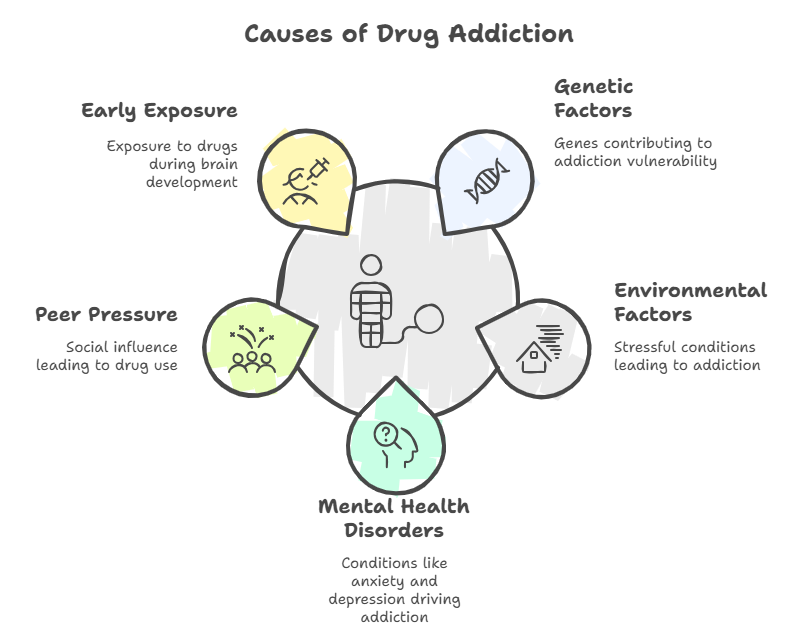
What Are the Risk Factors for Drug Addiction?
Addiction can be caused by numerous factors; however, there are three major factors that can lead to addiction. The first is the early use of drugs, which will change the brain development process and necessitate the need to take the drug. Family history of substance use disorder is another major risk factor. Finally, any co-occurring mental health disorders may make individuals self-medicate and eventually end up addicted.
What Are The Effects Of Drug Addiction?
The effects of drug addiction can impact the individual’s health and mental well-being. Additionally, it can impact their social life as well as have an impact on their long-term future. The effects of drug addiction can showcase short-term or long-term effects. Let’s look at these effects below.
Short-Term Effects Of Drug Addiction
The short-term effects are present for a short period, and some of them include
- Nausea and vomiting
- Slurred speech or confusion
- Intense rush or euphoria
- Impaired motor skills
- Shallow breathing or a change in heart rate
- Enlarged or constricted pupils
Long-Term Effects Of Drug Addiction
Chronic drug addiction has lasting effects on the body and has effects that include
- Organ damage or cardiovascular diseases
- Increased risk of contracting infectious diseases
- Social isolation and damaged relationships
- Cancer
- Mental health disorders
- Financial and legal issues
How does drugs affect your mental health?
Drug addiction alters the brain structure, influencing its mood, reward, and functionality. These changes develop or worsen existing anxiety, depression, or cause paranoia. In some cases, it can cause psychosis or hallucinations in an individual. Long-term use can lead to disability in the cognitive functionality that affects decision-making and memory. This can lead to erratic mood swings and persistent irritability.
What are the treatments for drug addiction?
Drug addiction treatment requires a combination of evidence-based therapies and medications tailored to the individual’s needs. The best treatment addresses the physical, psychological, and behavioral factors.
The treatment for drug addiction is given below:
Medical Detox
Detoxification is the first step of drug addiction treatment. The process involves a medically supervised withdrawal of drugs under the guidance of a medical team. The team manages the symptoms of withdrawal during the medical detoxification and ensures that the patient is safe and comfortable. At Alpha Healing Center, we have an experienced team that ensures that they provide the best care and comfort during detox and the entire treatment cycle.
Medications
Medication-Assisted Treatment is a core treatment process that combines FDA-approved medications to get the best results. These medications help stabilise the brain chemistry to resist the use of substances.
Inpatient and outpatient treatment
Inpatient and outpatient treatment are two effective models to help people get away from addiction. The inpatient program is designed to provide help to patients in a structured environment. Generally, it lasts between 30 to 90 days and offers comprehensive treatment and care.
The outpatient programs are designed for patients who can’t fully commit to residential treatment. It offers greater flexibility, but individuals don’t get the best care and sometimes opt out of treatment.
Behavioral therapies
Behavior therapies are the core treatment given to patients suffering from drug addiction. These therapies are designed to change an individual’s thoughts about addiction and instill coping mechanisms. Additionally, they help improve problem-solving skills and provide motivation to stay sober.
Support groups
Support groups, like Alcoholics Anonymous or Narcotics Anonymous, are community-based groups that offer a safe space for individuals to share their experiences. They offer support and are non-judgmental to any problems. Furthermore, they offer a structured path to lasting recovery.
Can drug addiction be cured?
No, drug addiction is a chronic disease that cannot be fully cured. However, it can be managed to prevent relapse. If an individual follows a long-term evidence-based treatment, including medication and behavioral therapies, it can be efficiently managed. This allows individuals to live a successful life.
How to Prevent Relapse from Drug Addiction?
Relapse prevention is an ongoing process and requires a tailored care plan. Strategies to tackle relapse involve avoiding triggers and building strong support groups. Additionally, practicing healthy coping mechanisms can help avoid cravings and mitigate crises.
How common is relapse during drug addiction recovery?
Relapse is a common issue that plagues recovery in drug addiction. In fact, 50% patients suffer relapse within the first 12 weeks after treatment. This rate is similar to those of other chronic diseases like asthma or hypertension, highlighting the need for long-term supportive management.
How to support someone in drug addiction?
Supporting someone suffering from drug addiction should include an approach of compassion, non-judgment, and encouragement for professional intervention. This will include setting healthy boundaries, educating about the disease, and providing support. It is important to encourage them to take therapy and contact support groups.
Can drug addiction lead to legal problems?
Yes, drug addiction can lead to several legal problems. As per the NDPS Act, it can lead to monetary penalties or rigorous imprisonment for some drugs. Additionally, driving under the influence can also incur DUI/DWI charges. Furthermore, compulsive use overrides your judgment and can make you engage in illegal activities.


